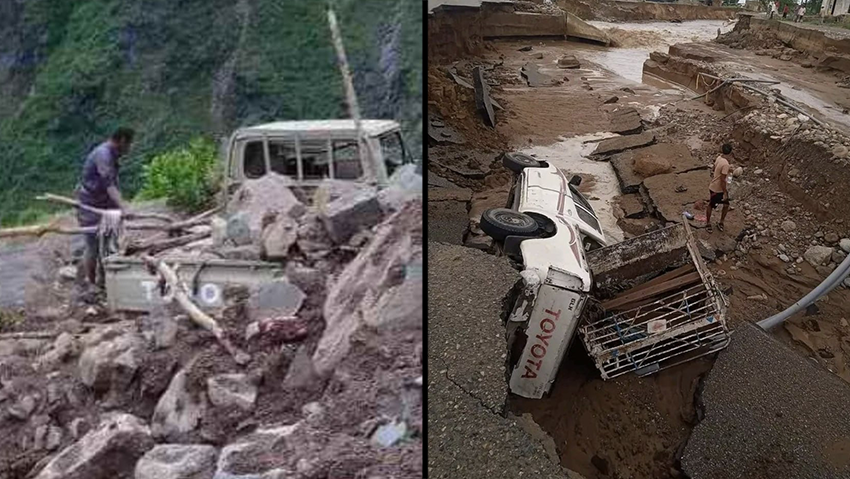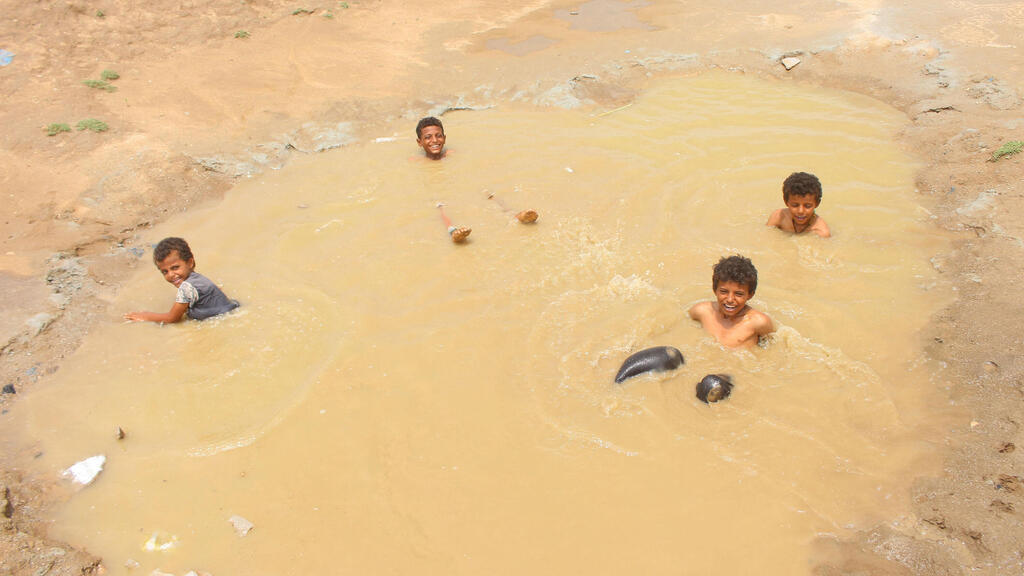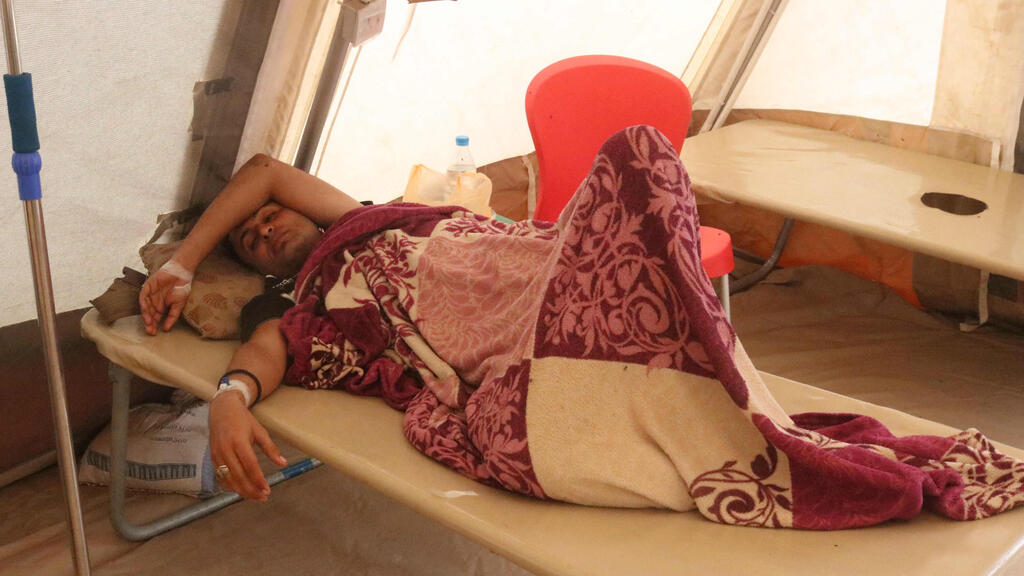Getting your Trinity Audio player ready...
In recent weeks, heavy rains have caused severe flooding across several regions in Yemen, resulting in significant loss of life and extensive property damage. Dozens have died in the floods, which have devastated communities.
On Wednesday, videos of flooding in the Hodeidah governorate were released, along with reports of casualties and missing persons in Al-Mahwit. Social media has been flooded with footage showing streets turned into rivers and widespread destruction.
Yemen is an impoverished nation, lacking proper infrastructure. Even before the floods, the country was facing severe economic and social challenges. Large areas of Yemen are controlled by the Iran-backed Houthis, where poverty, hunger and disease are even more rampant.
The floods are exacerbating the spread of a cholera outbreak, which is caused by contaminated water or food. Cholera had already begun spreading in Houthi-controlled areas long before the floods. A severe water shortage, inadequate health care facilities, and high levels of malnutrition have contributed to a rise in cases since the end of last year.
Estimating the full extent of the outbreak is difficult due to limited access to information and those affected. However, there are growing fears in Yemen of a significant spread of cholera, as the floods carry the disease further, and the country is ill-prepared to handle such a crisis.
According to a report by the AFP news agency, there are concerns that as many as 164,000 Yemenis may already be infected with cholera, with the number potentially rising to 250,000 in the coming weeks if efforts to address the situation are not intensified. Other reports suggest the number has already surpassed 170,000.
A doctor at a regional clinic in western Yemen told AFP that the demand for medical assistance has surged due to the floods and warned that medical staff could be overwhelmed at any moment. At the same time, in Houthi-controlled areas, aid organization representatives face the risk of arrest, further complicating efforts to provide much-needed assistance to the citizens.
In recent weeks, the floods have worsened another problem caused by the Houthis who have scattered landmines in various parts of the country, which pose a danger even in normal times. Now, the floods have caused these mines to spread uncontrollably, creating an even more severe threat.
Cholera is a bacterial infection of the intestines caused by the Vibrio cholerae bacterium, which releases a toxin in the intestines leading to severe diarrhea. The disease primarily occurs in countries without adequate sewage and water systems. According to the Clalit health website, cholera is usually mild, resulting in mild, self-limiting diarrhea.
However, one in 20 patients may develop a severe, life-threatening illness characterized by uncontrollable watery diarrhea, vomiting and leg cramps. Without appropriate treatment, severe cases can lead to extreme dehydration and death within hours. The World Health Organization describes cholera as an "extremely virulent disease" transmitted through the consumption of contaminated food or water, capable of causing acute watery diarrhea and death within hours.





